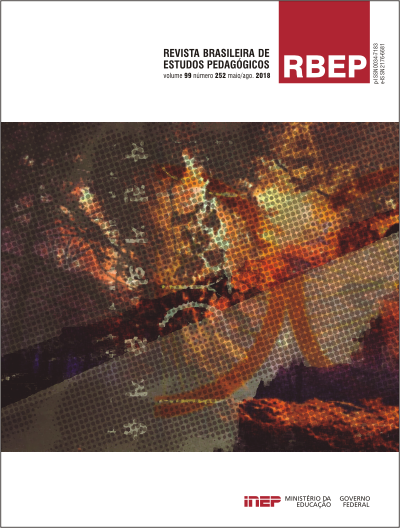The classroom as a technologically-equipped environment: thoughts on teacher training, teaching and learning in the early grades of basic education
Abstract
The motivation behind this qualitative study comes from positive results reported in literature (Zandvliet, 2012) on the permanent and immersive use of technology in the classroom. Aiming to pinpoint the contributions of a technologically-equipped environment to the literacy process in a first-year basic education class from a municipal public elementary school, this study assesses the output of a homemade-clay manufacturing activity carried by the children. The motivation, autonomy and collaboration; the students’ involvement in the text production; and the technological resources usage are all proof that such structure may be a positive differentiator on the daily routine of the classroom. Furthermore, some aspects of the development of teaching knowledge for the didactic usage of technology with basis on the TPCK model (Mishra; Koehler, 2006) are analyzed through the narrative of four of the school’s teachers. It was found indications of significant changes in the formative process, which leads towards the development of the teachers’ autonomy.
Downloads
Once their work is accepted for publication, author’s copyrights are automatically relinquished to the National Institute for Educational Studies and Research Anísio Teixeira (Inep).
Since 2016, the journal Revista Brasileira de Estudos Pedagógicos (RBEP) uses the licence CC-BY.
Partial or total reproduction of the content of this Journal is permitted provided that the original publication is properly referenced, as well as a link to license CC BY 4.0 and to indicate any possible alterations made to the article.




















